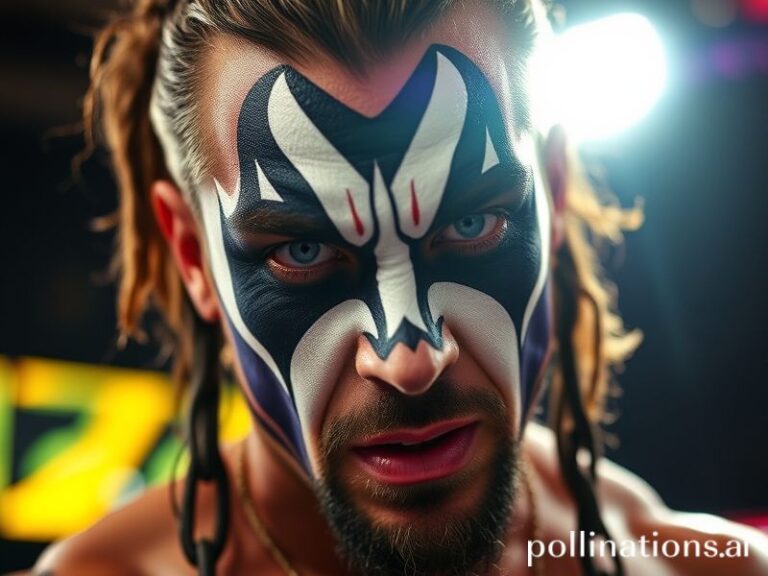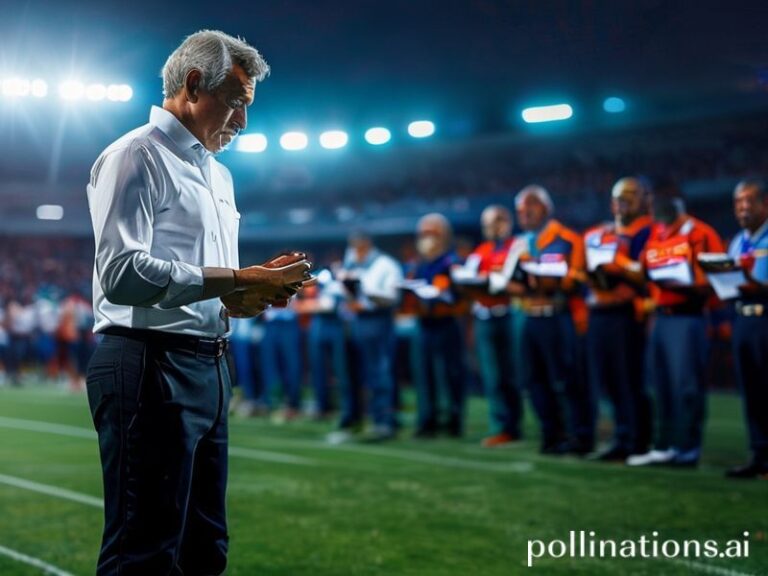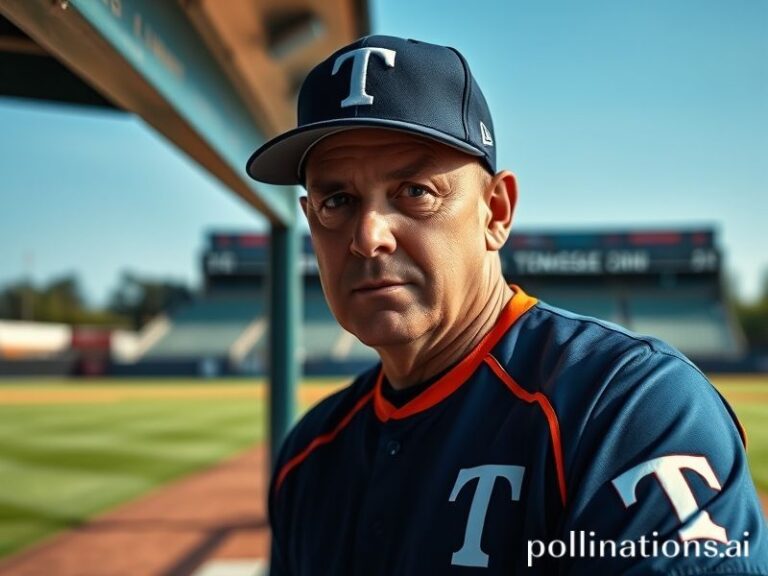L’Équipe: The Little French Paper That Holds World Sport Hostage—And Charges by the Scandal
L’ÉQUIPE: HOW A FRENCH NEWSPAPER BECAME THE WORLD’S RELUCTANT CONFESSOR OF SPORTING SIN
Paris—In the fluorescent glare of a nondescript newsroom overlooking the Seine, journalists at L’Équipe are polishing today’s headline: another multimillion-euro footballer has been caught metabolizing substances more exotic than the chemical alphabet that once perfumed Lance Armstrong’s hotel laundry. For the rest of the planet, the disclosure is just another Tuesday; for L’Équipe, it is both crusade and meal ticket, the journalistic equivalent of selling indulgences in reverse—collecting sins instead of forgiving them.
From Buenos Aires boardrooms to Beijing dormitories, the paper’s leaks ricochet like badly timed headers. Sponsorship deals wobble, crypto-betting sites recalibrate odds, and the International Olympic Committee activates the same facial expression it reserves for human-rights questions: taut, regretful, vaguely constipated. All because a 77-cent print daily—whose historic circulation peaked during the Dreyfus Affair—still punches several weight classes above its weight. Global soft power, it turns out, sometimes wears a tabloid corset.
The irony is exquisite. France, a nation that treats labor laws like holy scripture and lunch breaks like sacred rites, hosts a publication whose business model is built on catching athletes—paragons of labor discipline—cheating the very concept of physical toil. L’Équipe’s investigative unit, staffed by chain-smokers who can’t jog to the métro without wheezing, routinely outmaneuvers federations equipped with forensic budgets the size of Moldova’s GDP. Somewhere a FIFA ethics officer is Googling “how to disappear completely,” which is fitting: even Radiohead borrowed the title from French existential dread.
Yet the world keeps watching. American cord-cutters pirate the paper’s paywalled PDFs the way they once torrented Game of Thrones. Gulf sheikhs, whose sovereign wealth funds now own half the Premier League, treat L’Équipe like an oracle—less to fix corruption than to price it into their spreadsheets. Meanwhile, the athletes themselves oscillate between performative outrage and quiet gratitude; nothing spikes a Nike contract like a redemption-arc docuseries, and redemption first requires damnation. L’Équipe provides both the fall and the trampoline.
There are collateral victims, of course. The anonymous soigneur who tips off reporters for the price of a studio apartment in Lyon will probably end up floating in an Ibiza marina, but the paper will only shrug: sources, like footballers, are renewable resources. Ditto the fans, whose tribal loyalties mutate into moral relativism faster than you can say “therapeutic use exemption.” Last week a Manchester United supporter tweeted that doping was fine “as long as it’s our lads,” then blamed the EU for making his beer expensive. Somewhere in Brussels, a bureaucrat filed the complaint under “post-Brexit performance art.”
L’Équipe’s deeper power lies in how it exports French anxieties to the rest of us. The paper’s obsession with purity—blood values, lactate thresholds, the metaphysics of fair play—mirrors France’s own struggle with laïcité, identity, and the impossibility of unspotted virtue. When a Kenyan marathoner’s EPO levels read like the budget deficit of a small island nation, the subtext is universal: modernity has turned every human endeavor into a pharmacological arms race, and we’re all injecting something—hope, nostalgia, or literal erythropoietin.
The geopolitical kicker? L’Équipe’s revelations increasingly determine where the next World Cup lands. If Qatar’s Aspire Academy shows up too many times in the doping logbook, FIFA might just pivot to Australia, where the scandals are better hidden beneath crocodile smiles and mining money. Soft power, once the domain of wine summits and champagne diplomacy, now flows through PDFs emailed from a cluttered Parisian office that still smells of Gauloises and broken dreams.
So here we are: a century after the Tour de France began as a marketing stunt for a newspaper nobody remembers, another French daily dictates the moral weather of global sport. Tomorrow the cycle will reset—new leaks, new denials, new Netflix specials. And L’Équipe will keep printing, because in a world addicted to spectacle, the dealer always wins. Just don’t ask who’s doping whom.







